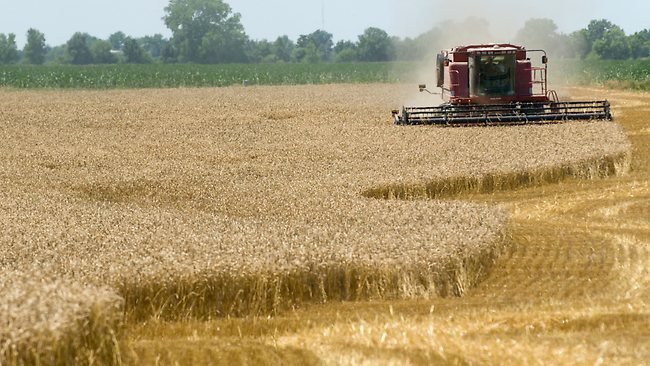ISLAMABAD: Due to special emphasis paid by the incumbent government on agriculture sector, the output of all major crops witnessed gradual and significant increase during first three years of its tenure, besides introducing measures to promote imports substitutes.
The government had also launched 13 mega developmental projects under Prime Minister National Agriculture Emergency Program for the overall uplift of the agriculture sector and steps were also taken for export facilitation for enhancing local exports of agriculture goods.
The export facilitation actions helped in restoration of export of citrus and guava to UK and Norway in compliance with their SPS requirements which were suspended since 2014, according the ” Three years performance report 2018-21″, launched by the government on Thursday.
In order to enhance the local exports of fruits and vegetables, the government had also established hot water treatment facilities for mango and resultant increase in export of mango, besides record export volume of onion in 2020, which was registered at 24,5031metric tons.
Meanwhile , rice exports increased by 11% during 2018-2020 and during the period under review record increase in production of major crops like wheat increased by 8.1% as total wheat production reached to 27.293 million tons as against 25.249 million tons of same period last year.
Meanwhile, 7.4% increase in maize production was recorded as total output of maize registered at 8.465 million tons as against 7.883 million tons of same period of last year.
The local output of rice, which was another major cash crop of the country and vital component of exports earning grew by 13.6% and total production recorded at 8.419 million tons as against 7.414 million tons of last year.
During the period under review, the sugarcane production in the country increased by 22% and total production was registered at 81.009 million tons as against 66.380 million tons last year.
During its first three years tenure, the incumbent government had also introduced policy initiatives including subsidy on Rabi and Kharif crops to the tune of Rs6 billion for fertilizer, seed and pesticides, besides markup subsidy worth Rs. 4 billion @ 10% for all farmers holding 12.5 acre land through Zarai Taraqiati Bank Limited.
The government also ensured food security in country during COVID-19 pandemic and maintained strategic wheat reserves through timely procurement and import, besides ensuring certified seed availability of wheat and cotton crops to the growers.
The Locust Emergency and Food Security Project (LEAFS) worth $ 200 million has been approved and signed by the government and is being made operational for institutional strengthening of the Department of Plant Protection.
On the other hand government had also concentrated to reduce the huge reliance on imported edible oil, which was consuming billion of dollars every year and in three years undertaken several initiatives for the promotion of olive cultivation on commercial scale in Pakistan.
The other initiatives included the cultivation of olives on more than 1,000 acres across the country and installed drip Irrigation system on 1,639 acres as water saving technology to conserve swiftly depleting very important natural resource for bringing more area under high-value crop production.
The government has also established 05 weather stations and 03 value addition labs for the promotion of agriculture sector.
Newspakistan.tv | YouTube Channel











